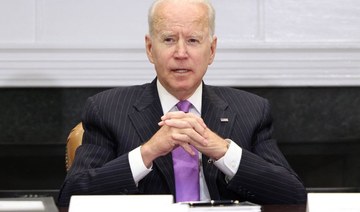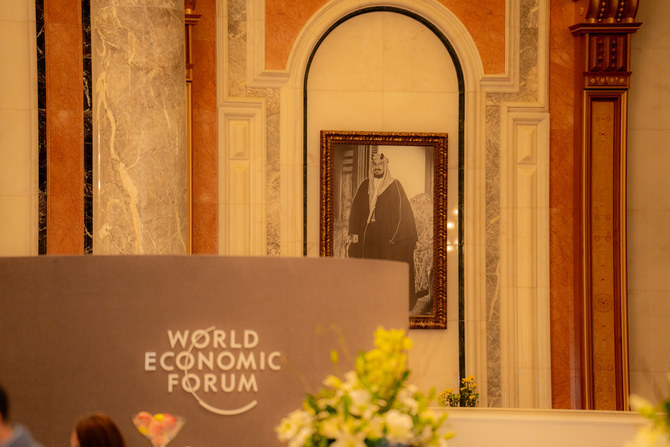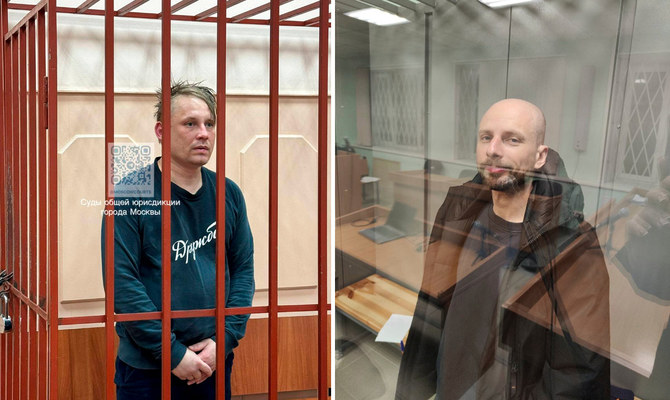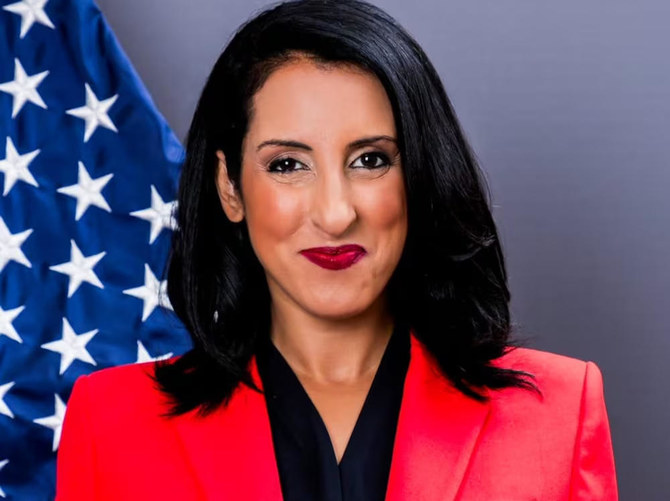WASHINGTON: A US House panel pushed ahead on Wednesday with ambitious legislation that could curb the market power of tech giants Facebook, Google, Amazon and Apple, and force them to sever their dominant platforms from their other lines of business.
Conservative Republican lawmakers haggled over legislative language and pushed concerns of perceived anti-conservative bias in online platforms, but could not halt the bipartisan momentum behind the package.
The drafting session and votes by the House Judiciary Committee are initial steps in what promises to be a strenuous slog through Congress.
Many Republican lawmakers denounce the market dominance of Big Tech but do not support a wholesale revamp of the antitrust laws.
Work on the massive bipartisan legislation stretched into the night. The session pushed beyond the 12-hour mark as lengthy debate ensued over a complex bill that would require online platforms to allow users to communicate directly with users on rival services.
Proponents said the measure would also give consumers more power to determine how and with whom their personal data is shared.
Earlier, the Democratic-majority committee made quick work of arguably the least controversial bills in the package, which were approved over Republican objections.
A measure that would increase the budget of the Federal Trade Commission drew Republican conservatives’ ire as an avenue toward amplified power for the agency.
The legislation, passed 29-12 and sent to the full US House, would increase filing fees for proposed tech mergers worth more than $500 million, and cut the fees for those under that level.
A second bill would give states greater powers over companies in determining the courts in which to prosecute tech antitrust cases.
Many state attorneys general have pursued antitrust cases against big tech companies, and many states joined with the US Justice Department and the Federal Trade Commission (FTC) in their antitrust lawsuits against Google and Facebook, respectively, last year. The measure drew many Republican votes and was approved 34-7.
The advance of the legislation comes as the tech giants are already smarting under federal investigations, epic antitrust lawsuits, near-constant condemnation from politicians of both parties, and a newly installed head of the powerful FTC who is a fierce critic of the industry.
The legislative package, led by industry critic Rep. David Cicilline, targets the companies’ structure and could point toward breaking them up, a dramatic step for Congress to take against a powerful industry whose products are woven into everyday life.
If such steps were mandated, they could bring the biggest changes to the industry since the federal government’s landmark case against Microsoft some 20 years ago.
The Democratic lawmakers championing the proposals reaffirmed the case for curbing Big Tech as the committee began digging into the legislation.
It “will pave the way for a stronger economy and a stronger democracy for the American people by reining in anti-competitive abuses of the most dominant firms online,” said Rep. Jerrold Nadler, the Judiciary Committee chair.
“Each bill is an essential part of a bipartisan plan to level the playing field for innovators, entrepreneurs and startups — and to bring the benefits of increased innovation and choice to American consumers.”
Conservative Republicans laid down their markers. They insisted that the proposed legislation does not truly attack anti-competitive abuses by the tech industry because it fails to address anti-conservative bias on its social media platforms.
And they previewed a fight over legislative definitions. The legislation as drafted would apply to online platforms with 50 million or more monthly active users, annual sales or market value of over $600 billion, and a role as “a critical trading partner.”
The new proposals “make it worse,” said Rep. Jim Jordan, the panel’s senior Republican. “They don’t break up Big Tech. They don’t stop censorship.”
The legislation’s definition of which online platforms would fall under stricter antitrust standards could mean that companies such as Microsoft, Walmart and Visa would soon be included, Jordan suggested. “Who knows where it will end?” he said.
President Joe Biden’s surprise move last week elevating antitrust legal scholar Lina Khan to head the FTC was a clear signal of a tough stance toward the tech giants. It was top of mind for the conservative Republicans objecting to the new legislation.
Khan played a key role in the Judiciary Committee’s sweeping 2019-20 investigation of the tech giants’ market power.
The four companies deny abusing their dominant market position, and assert that improper intervention in the market through legislation would hurt small businesses and consumers.
Lauded as engines of innovation, the Silicon Valley giants for decades enjoyed minimal regulation and star status in Washington, with a notable coziness during the Obama administration, when Biden was vice president.
The industry’s fortunes abruptly reversed about two years ago when the companies came under intense federal scrutiny, a searing congressional investigation, and growing public criticism over issues of competition, consumer privacy and hate speech.
Biden said as a presidential candidate that dismantling the big tech companies should be considered.
He also has said he wants to see changes to the social media companies’ long-held legal protections for speech on their platforms.
The legislative proposals would also prohibit the tech giants from favoring their own products and services over competitors on their platforms.
The legislation was informed by the 15-month Judiciary antitrust investigation, led by Cicilline, which concluded that the four tech giants have abused their market power by charging excessive fees, imposing tough contract terms, and extracting valuable data from individuals and businesses that rely on them.
The legislation also would make it tougher for the giant tech companies to snap up competitors in mergers, which they have completed by scores in recent years.
Democrats control the House, but they would need to garner significant Republican support in the Senate for legislation to pass.
The chamber is split 50-50, with the Democrats’ one-vote margin depending on Vice President Kamala Harris being the tiebreaker.
























